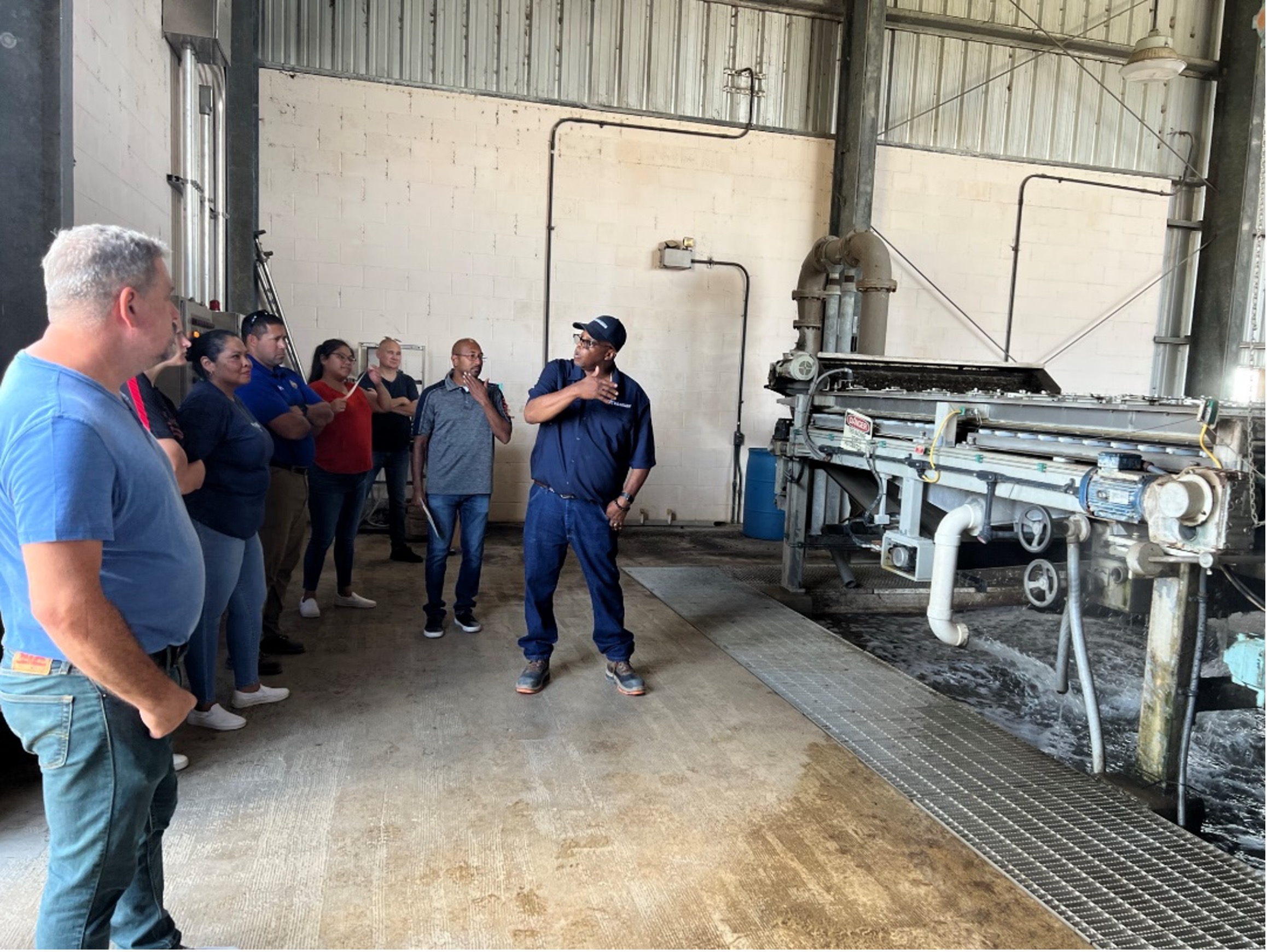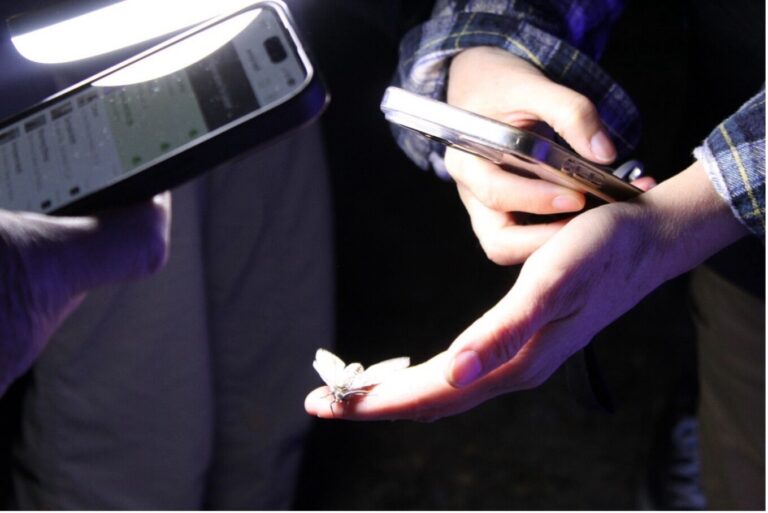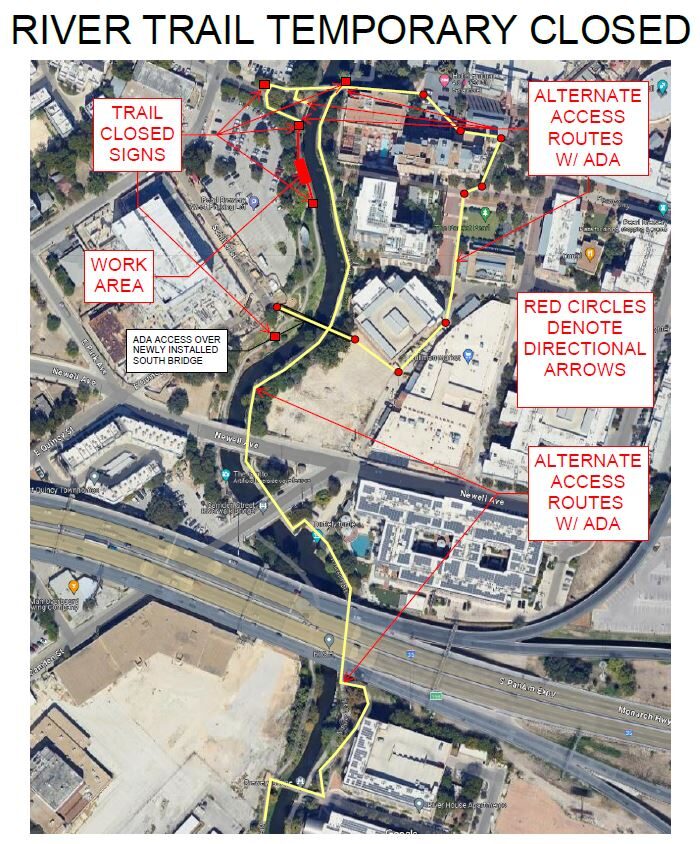Last Updated on January 30, 2024
The “My River POV” series provides readers the opportunity to learn about the unique insight and experiences of the San Antonio River Authority (River Authority) staff and their personal connection to the San Antonio River in hopes of inspiring stewardship of area creeks and rivers.
Sterling Lee, Superintendent, Treatment Operations
What does a Utilities Operator do?
As Superintendent, I oversee the proper treatment processes for seven wastewater treatment plants (WWTPs), one reclaimed water system, and six lift stations. I also regularly review our supervisory computer system (SCADA) to check the flows coming into our plants. With SCADA, we can monitor the WWTPs even when we’re not here. This is a 24-hour, seven-days-a-week operation, so the plants never shut off, and they must be ready and have the ability to serve our communities. Anything can happen at a WWTP, from the power going out to a thunderstorm rolling in. SCADA has helped us bring more crew on during the day, have a better schedule, and no one needs to be out here overnight. I remember when I first started, and we were doing night shifts. It was 36 years ago, and there was nothing out here in East San Antonio – just us and the snakes and raccoons.
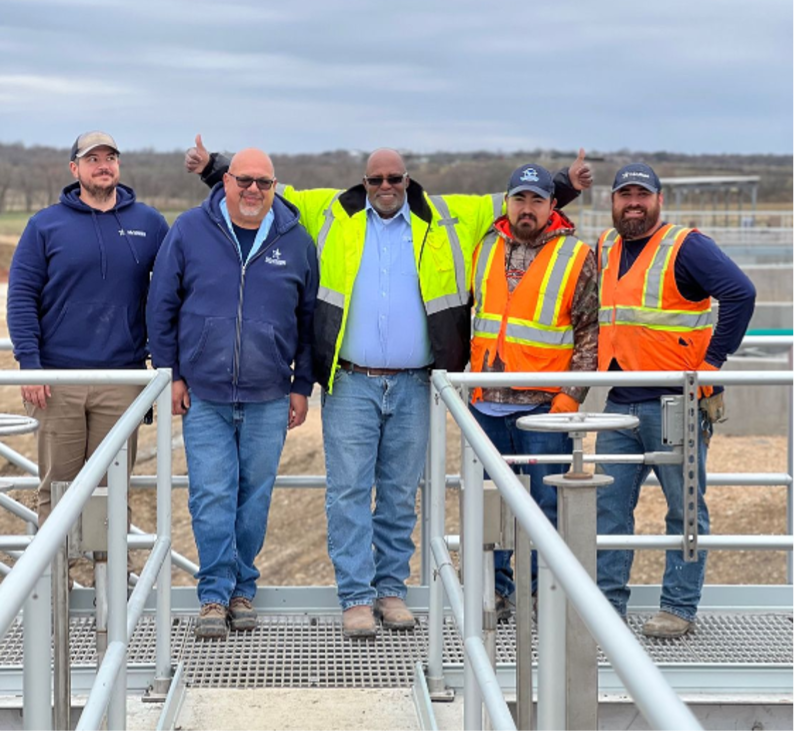
Why do you enjoy working for the River Authority?
If you ask me, the reason I’ve been here as long as I have is the people. I love what I do and the people I do it with. I work around some of the nicest, kindest, most respectful people. This is not an individual sport; it’s a team sport. It requires everyone to have each other’s back on days, nights, weekends, and holidays. The thing that made me feel great about this organization is all the support I’ve been given from the executive staff, the other departments, and especially my own team. We’re like a family out here. The main thing that people need to understand is that I could never have accomplished what I have without the people who helped me do it. There’s one memory from several years ago that really reinforces this. My father came to visit me here in San Antonio, and I brought him to the WWTP to show him what I did and meet my team. He said something I’ll never forget. And this is from a man who rarely spoke that much. He said, “Sterling, you’re a rarity—a person who has a career that they love and work for people that love him. Not too many people achieve that in life.” He was right. The reason I am here is because of the people. To be honest, I was born to do this because this is one of the things in my life that came easy to me. I knew this was what I was meant to do, and that’s why I stayed.
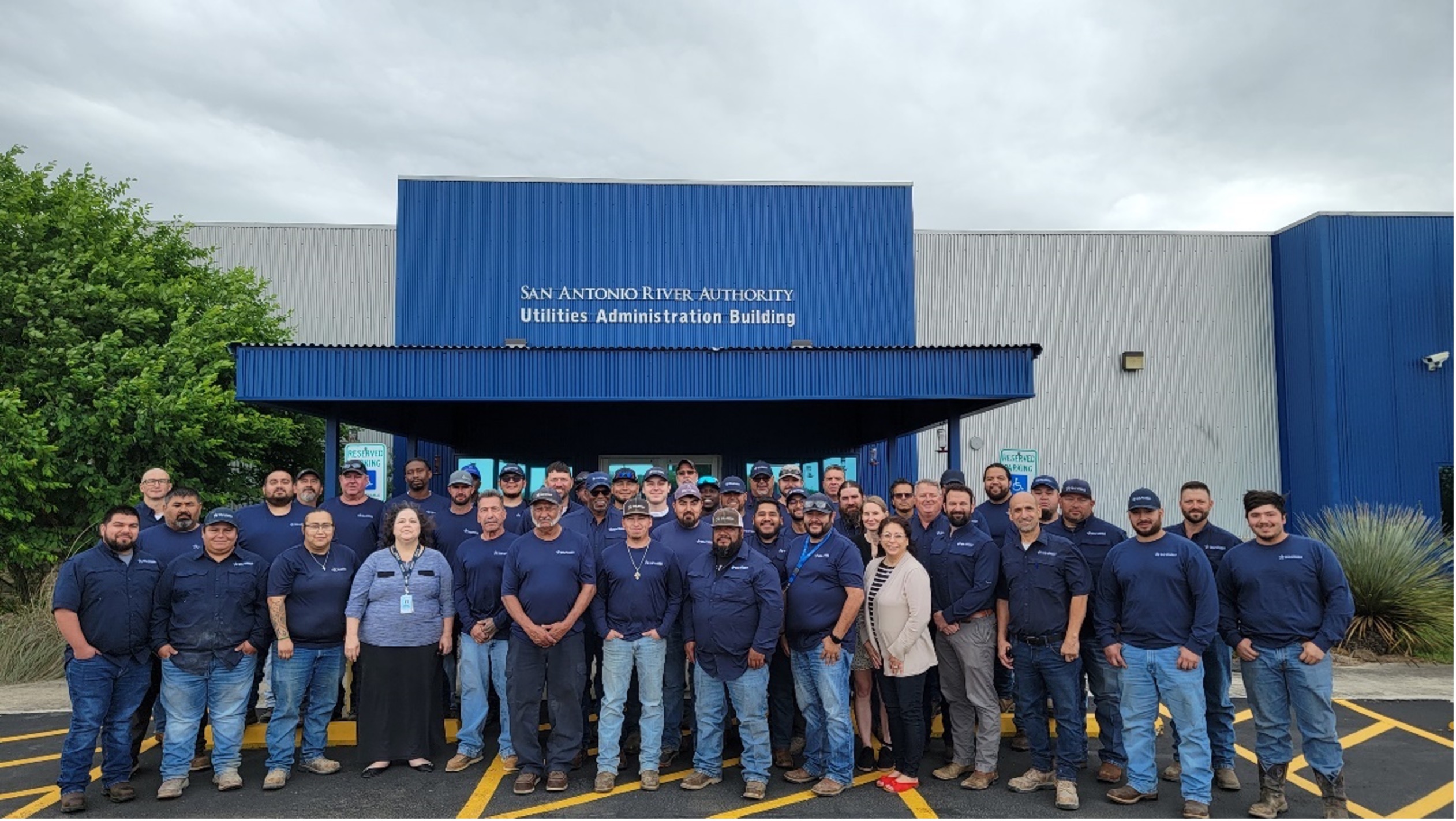
San Antonio River Authority Utilities Department
How does your team contribute to safe, clean, and enjoyable waterways throughout the basin?
An essential design of the wastewater treatment process is to enhance the water quality in the rivers and streams by creating effluent with high concentrations of dissolved oxygen that the fish and aquatic life love. It also means not adding any pollution or contaminants to the water that might harm aquatic life or people. We have the responsibility to perform our service at a higher level because we are the protectors of the rivers and streams in Texas, and we strive every day to produce the highest quality water. We say here in Utilities that “the solution to pollution is dilution” because the clean water leaving our plants helps the water in the creeks and rivers around here to be cleaner. The River Authority really invests in the process control tools that my team needs to do our job and keep our plants running to their best ability. For example, if you’re only taking a weekly sample of the wastewater, it can take a few weeks to find out if you have problems, but we’re fortunate that we have management that invests in us and allows us to process these samples quickly.
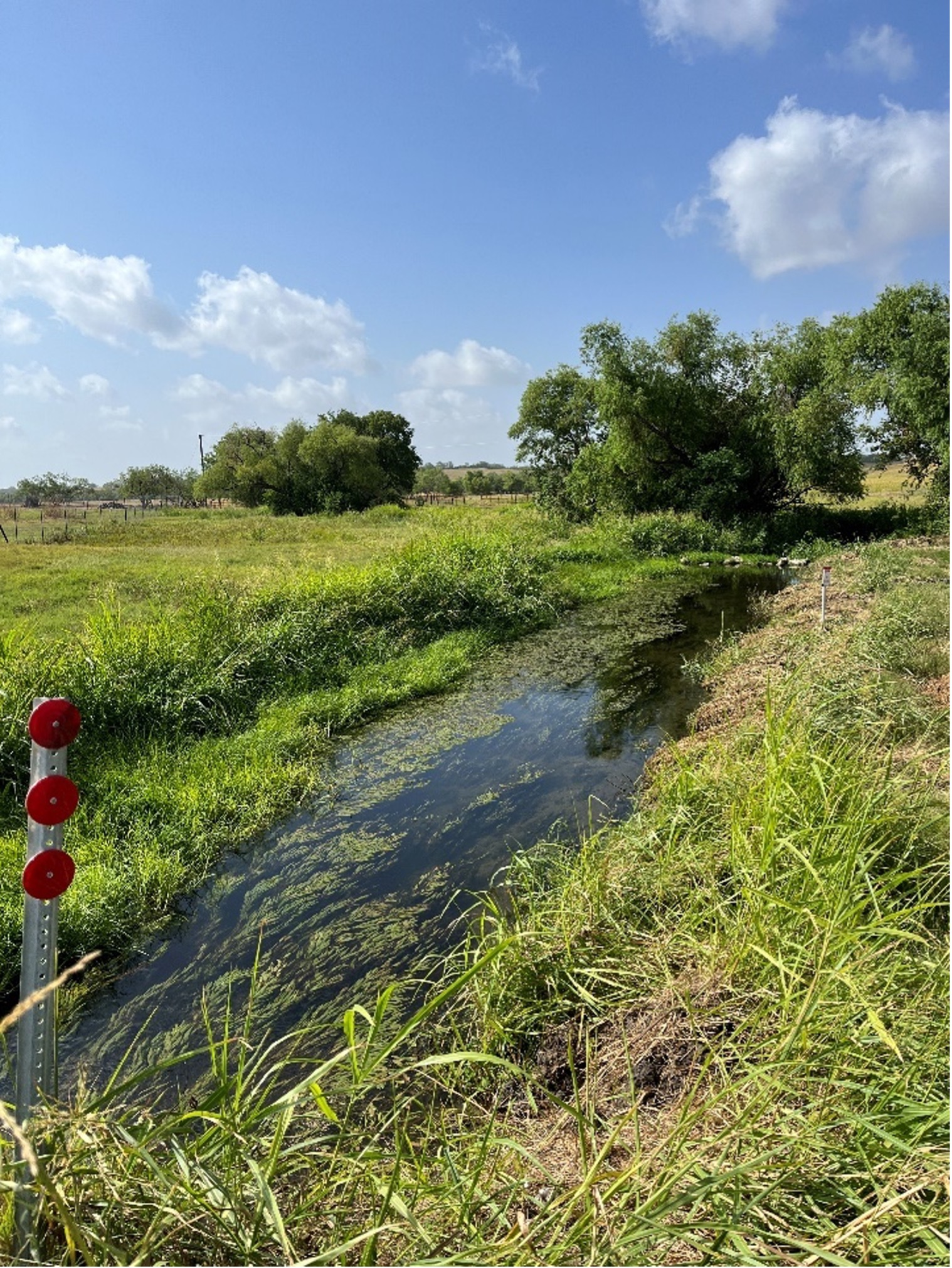
Clean, high-quality effluent from the WWTP is discharged at the outfall shown here.
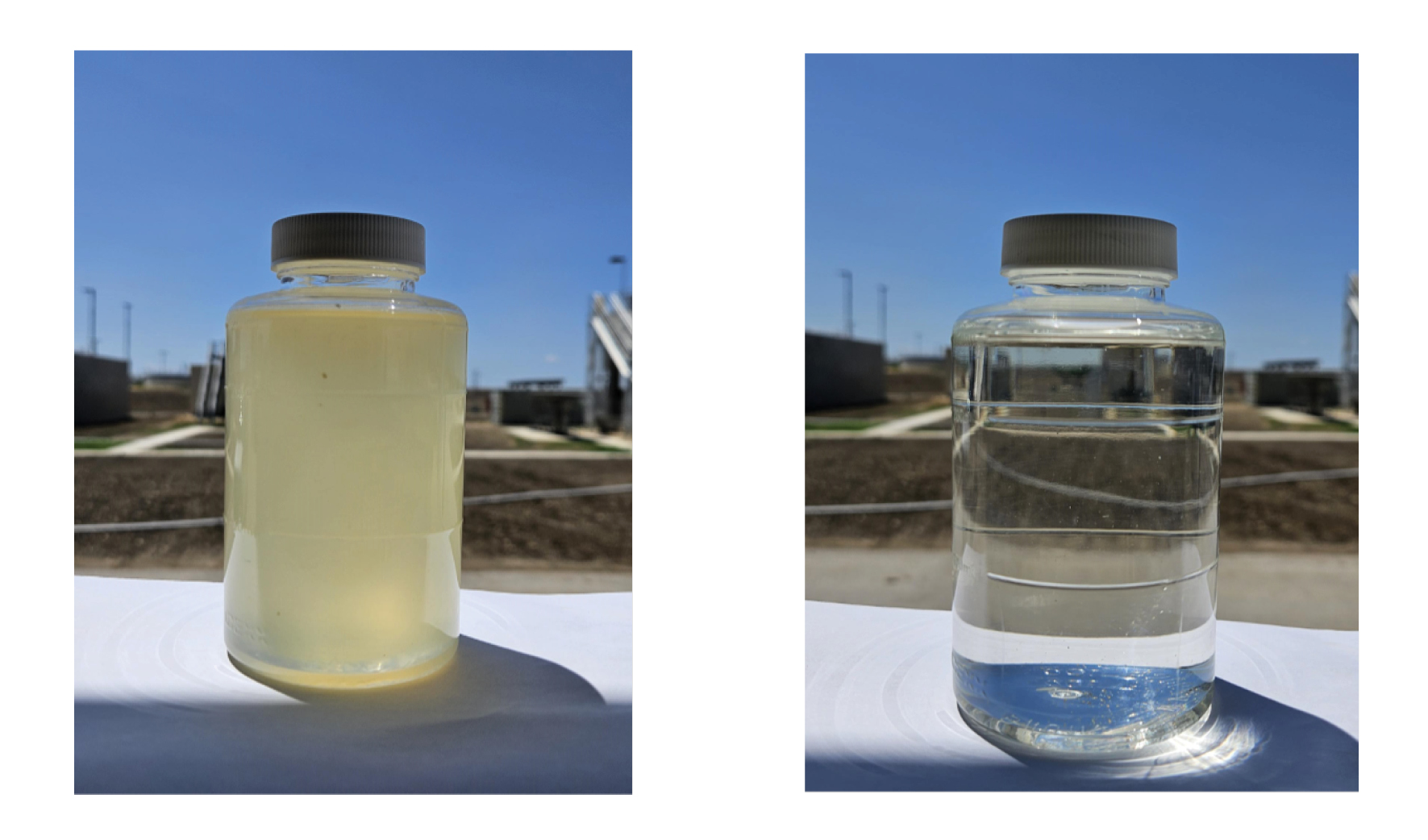
Wastewater before (left) and after (right) treatment at a River Authority-operated WWTP.
What accomplishments are you most proud of?
I’ve had a lot of success in this industry. Despite all of my accomplishments over the years, the one I’m most proud of is when our team went down to McAllen in 2008 in the aftermath of Hurricane Dolly. The storm was devastating, causing significant flooding and closing down businesses completely. I had never seen so many houses underwater before. We went down there for several days to help pump water out of the floodwater canals that were backed up with trash and debris, flooding people’s homes. It was one of the best feelings I had to go down there and make a difference and be there for people in our communities. The things that we’ve done as an organization to help people, not just paying lip service. That’s the thing I love about this organization the most. Everything we say, we believe, and we live up to it. No matter where people need help, we are able to go down there and help out and be there for them. I’m proud that we’re not just keeping all these skills to ourselves. We are stewards, and we do really care about the people we serve. I love that, and that’s something that means a lot to me.
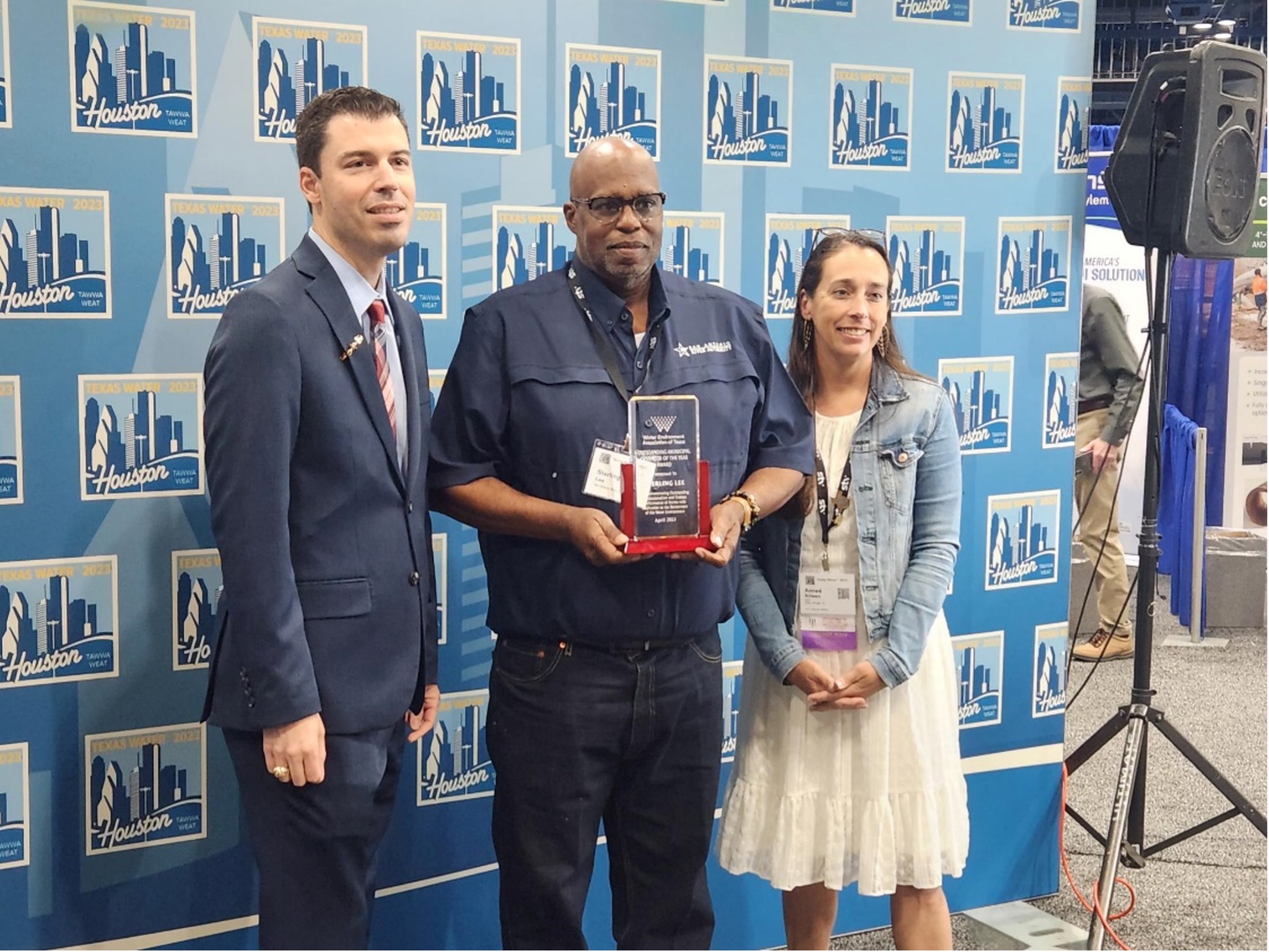
Sterling received the 2023 Outstanding Operator of the Year Award from the Water Environment Association of Texas.
How can the public help support your team?
Please don’t throw wipes or pour acids down the drain because the microorganisms at our plant that process the waste are just like people. They want the same things as us—oxygen, food, and the ability to keep growing their communities and reproducing. These microorganisms like to eat the food that we’ve consumed, and whatever hurts us can hurt them as well. That’s why it’s essential to be aware of what we are putting down our toilets and drains. We also have to look out for illegal dumping- people trying to get rid of their waste without paying the appropriate fees. For example, some things that can’t be processed at most WWTPs are the waste from porta potties, fats, oils, and grease from restaurants, car oil, and chemicals like soaps and phosphates from car washes. Our inspection and quality control teams visit restaurants and businesses to make sure they are complying with the code and doing the right thing. The public can always call our environmental investigation team to report any illegal dumping.
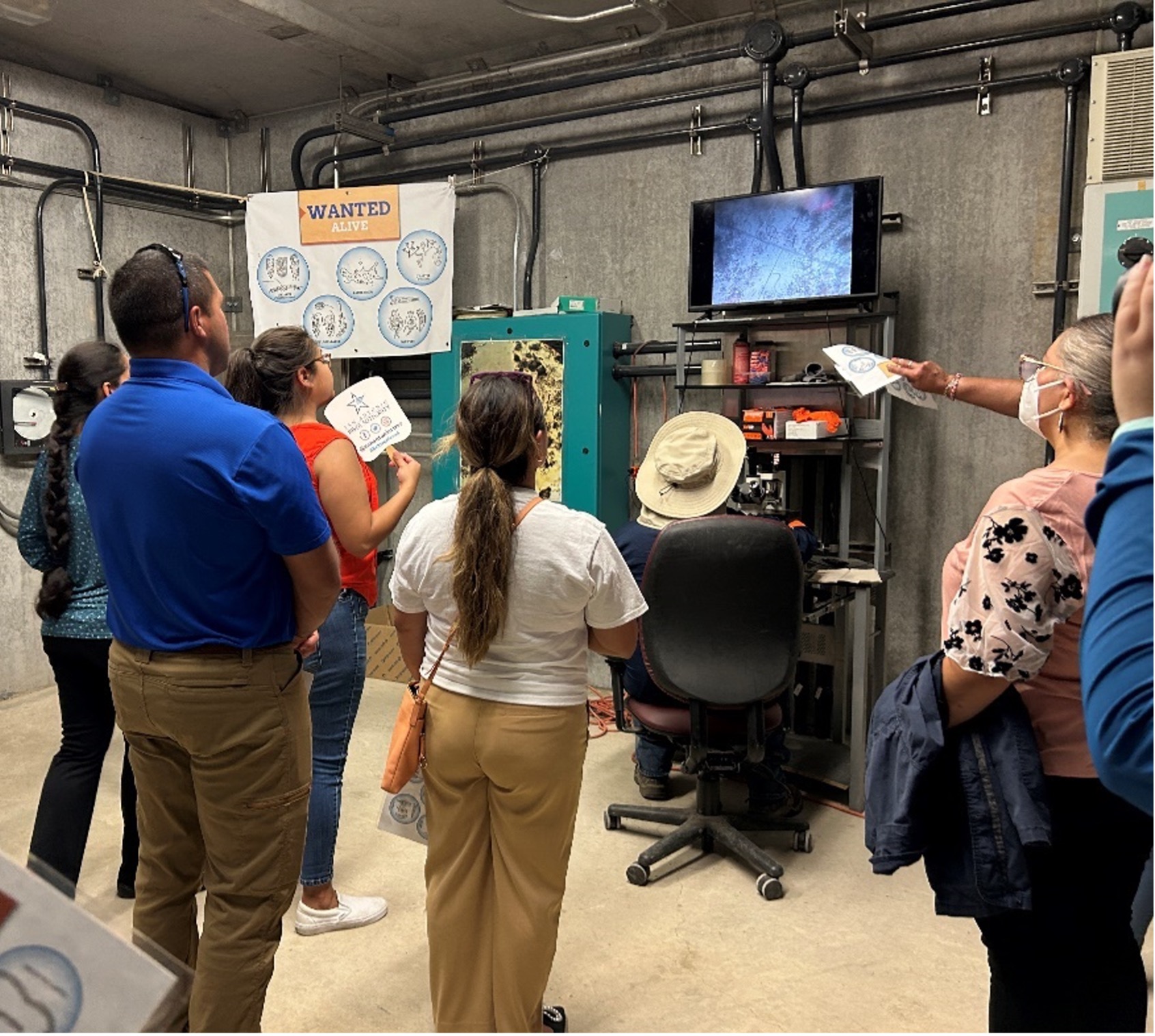
Examining microorganisms in a wastewater sample under a microscope during a public tour.
How can we preserve the river for future generations?
I don’t think many people realize the valuable service that WWTPs perform. That’s why I like giving tours. Even though it is time-intensive to prepare for community members to come out to the plants, it is worth it because you’ll never get the respect you deserve unless you alert the public to what you do. And from respect flows money, which is essential to keeping people in the career field. It’s not the most glamorous job, but it’s a critical job. What we do in Utilities is just as important as police, firefighters, and the military. We are first responders protecting public health, 24 hours a day, seven days a week. I’m seeing more and more teachers and instructors say the same thing- that water professionals need to be put in the same category as first responders. The moment people can’t flush the toilet or turn on the faucet and get water, there’s a panic. So, I feel like my job for the rest of my life is to get out there and beat the drum and try to get some attention on what these men and women in Utilities do on a daily basis—not only at the River Authority—but all throughout the country.
